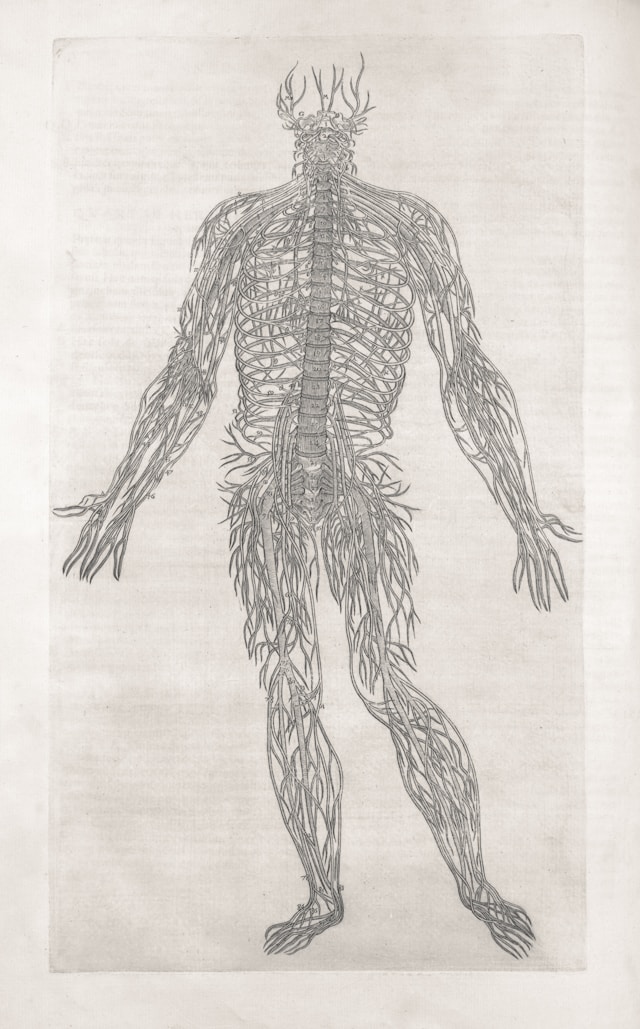How Pinched Nerves Happen After an Auto Accident

How Pinched Nerves Happen After an Auto Accident
Auto accidents can leave behind more than just dents and scratches. Many people walk away from a crash thinking they are okay, only to experience serious pain days or even weeks later. One of the most common hidden injuries is a pinched nerve. This type of injury can lead to pain, numbness, and long-term discomfort. Understanding how pinched nerves happen after an auto accident can help you recognize the signs early and get the treatment and compensation you deserve.
What Is a Pinched Nerve?
A pinched nerve occurs when surrounding tissues—such as bones, cartilage, muscles, or tendons—put too much pressure on a nerve. This pressure interferes with the nerve’s function and causes pain, tingling, numbness, or weakness. Pinched nerves are especially common in the neck and back after a car crash, but they can occur in other parts of the body too.
In many cases, a pinched nerve is not immediately obvious. You may feel sore after the crash and assume it will go away. But over time, if the nerve stays compressed, symptoms may get worse. That’s why it’s important to understand how these injuries happen and what to look for.
How Auto Accidents Cause Pinched Nerves
Auto accidents often involve sudden, violent movements. When your body is jerked forward or sideways, your spine, neck, and joints are forced out of their normal positions. This motion can cause vertebrae to shift, muscles to strain, or discs in the spine to herniate. Each of these problems can put pressure on nearby nerves.
Here are some common ways a crash can lead to a pinched nerve:
- Whiplash: This is a common injury in rear-end accidents. The force of impact throws your head forward and backward quickly. This rapid motion can strain the neck and upper spine, pinching the nerves in the cervical region.
- Herniated discs: The discs between your vertebrae can bulge or rupture from the impact. When this happens, the inner material of the disc pushes out and presses on nearby nerves, leading to pain and numbness.
- Spinal misalignment: A crash can cause your spine to shift out of alignment. Even a slight misalignment can put pressure on nerve roots exiting the spinal column.
- Inflammation: Tissue damage from the crash can cause swelling. That inflammation can press on nerves until the swelling goes down.
- Muscle injury: Strained or spasming muscles can also press against nerves, especially in the shoulders, arms, or lower back.
Symptoms of a Pinched Nerve After a Crash
The symptoms of a pinched nerve can vary depending on the location and severity of the injury. Some people feel pain right away. Others might not notice symptoms for several days. In general, you should watch for:
- Sharp or burning pain
- Tingling or a “pins and needles” sensation
- Numbness in the arms, hands, legs, or feet
- Muscle weakness
- Pain that radiates down a limb (such as sciatica)
- Increased pain when turning your head or moving your back
If you notice these symptoms after an accident, it’s important to seek medical attention. Even if the symptoms seem mild, they can get worse over time without treatment.
Diagnosing a Pinched Nerve
To diagnose a pinched nerve, doctors typically start with a physical exam and review of your symptoms. They may ask about your pain, numbness, and whether it gets worse with certain movements. Imaging tests, such as MRI or CT scans, may be used to see if a disc is herniated or if there’s swelling putting pressure on the nerves. In some cases, nerve conduction studies or electromyography (EMG) may be used to evaluate how well your nerves are working.
Getting an accurate diagnosis is key not just for treatment, but also for any legal or insurance claims. A documented diagnosis supports your case if you are seeking compensation for your injuries.
Treatment Options for Pinched Nerves
The good news is that most pinched nerves can be treated without surgery. Early treatment can help reduce pain and prevent long-term damage. Common treatments include:
- Rest and activity modification to avoid irritating the nerve
- Physical therapy to stretch and strengthen supporting muscles
- Anti-inflammatory medications to reduce swelling
- Steroid injections to reduce pain and inflammation
- Chiropractic care for spinal realignment
In more serious cases, or when conservative treatments fail, surgery may be needed to relieve the pressure on the nerve.
It’s important to follow your doctor’s advice and complete the full course of treatment. If you stop treatment too soon, symptoms can return or become chronic.
Why You Shouldn’t Ignore a Pinched Nerve
Ignoring a pinched nerve can lead to serious problems. Chronic nerve compression can cause permanent nerve damage. You may lose sensation in parts of your body, develop ongoing muscle weakness, or have trouble performing daily activities. The longer you wait to treat a pinched nerve, the harder it becomes to reverse the damage.
Beyond the physical impact, an untreated pinched nerve can affect your ability to work or care for your family. It may also reduce your quality of life. That’s why it’s so important to take your symptoms seriously, get medical attention, and consider speaking with a lawyer if the accident was someone else’s fault.
Pinched Nerves and Personal Injury Claims
If your pinched nerve was caused by a car accident that wasn’t your fault, you may be entitled to compensation. In California, you have the right to recover damages for medical expenses, lost wages, pain and suffering, and more.
Insurance companies often try to downplay soft tissue or nerve injuries. They may argue that your pain isn’t serious or that it wasn’t caused by the crash. That’s why it helps to work with an experienced personal injury lawyer who understands these types of injuries and knows how to prove them.
At Anderson Franco Law, we’ve helped many clients who suffered from pinched nerves after a car crash. We gather medical records, consult with experts, and build strong cases to get our clients the compensation they deserve.
What to Do If You Think You Have a Pinched Nerve
If you’ve been in an auto accident and suspect you have a pinched nerve, here’s what you should do:
- Seek medical attention right away, even if your symptoms are mild
- Follow all treatment instructions and keep records of your appointments
- Document how your injury affects your daily life and work
- Don’t settle with the insurance company without understanding your rights
- Contact a personal injury lawyer to discuss your case
You shouldn’t have to suffer alone or pay out of pocket for an injury caused by someone else’s negligence.
Let Anderson Franco Law Help
A pinched nerve may seem like a small injury, but it can cause serious pain and long-term complications. If you’ve been hurt in a car crash, Anderson Franco Law is here to help. We serve clients throughout California, especially in the San Francisco Bay Area. Our team understands the medical and legal challenges involved in nerve injury cases, and we fight for the compensation you need to heal and move forward.









